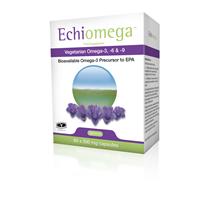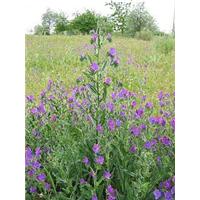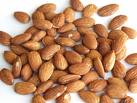
Beauty from the inside out in the buzz for 2008. Whilst it is the creams and lotions of major high street brands that tend to grab the headlines, there are some more traditional remedies that people have been using for centuries and which can have just as good, if not better results.
Bucking the trend The Forgotton Omega
Whilst Omegas 3 and 6, the essential fatty acids, have been hailed as the must have ingredients for healthy skin, there is another Omega that could play an even bigger role. The richest source of this Forgotton Omega is an oil from a prickly shrub known as Sea Buckthorn, which now it has reached the shores of the UK could quickly find itself as the must have of 2008
Sea Buckthorn (Hippophae Rhamnoides) is a well recognized source of traditional herbal medicine, vitamins and nutrients, and has been used in parts of Asia as an anti-aging and medicinal skin care product for many hundreds of years. Whilst the berries of the Sea Buckthorn plant have been hailed as exotic superfoods, with numerous uses and being rich in many important nutrients, it is their effect on skin that has received the most attention.
The first person to think of extracting the oil from this prickly shrub and rub it on their skin must have been thought mad by their piers, but due to its high content of nutrients, essential for the metabolism of skin cells, Sea Buckthorn helps to combat wrinkles, dryness and other symptoms of malnourished or prematurely aging skin.
Scientists now believe our most delicate body tissues, especially the skin membranes, use Omega 7 fatty acids as vital building blocks and one of the most concentrated sources of Omega 7 is Sea Buckthorn. Environmental stressors, such as sunlight and pollution, poor diet, and even normal aging, can challenge these sensitive membranes, and Omega 7 fatty acids are now being hailed as important agents to nourish, protect, replenish, moisturise, and restore.
Whilst the body can make Omega 7 itself, unlike Omegas 3 and 6, it is nevertheless thought that supplementation with Omega 7 could have large health implications for the skin and other bodily membranes.
Studies now support the use of Sea Buckthorn Oil1 for problem skin, including conditions such as eczema and dermatitis, and confirm that it is largely the berries high content of Omega 7 that is behind the benefits. This effect of Sea Buckthorn on external membranes has led to further research into how supplementation can help with digestive and genital tract lining problems 2.
Sea Buckthorn also contains Omegas 3, 6 and 9 and has been linked to various other health benefits including boosting the immune system and further anti-aging properties.
So, to give your skin a new start in 2008 and help get it looking fresh and young you should remember the prickly Sea Buckthorn and the Forgotten Omega.
Sea Buckthorn is a new product in the UK, but a high quality Sea Buckthorn supplement is available from Superdragon at < ahref="http://www.superherb.co.uk">www.superherb.co.uk
Radiate With Reishi
Hailed as the Oriental secret of youth, health and beauty Reishi remains relatively unknown in the West, but this mystical mushroom could be the key to radiant skin, increased energy levels, lower stress, better sleep, and overall improved health.
There is no doubt that Reishi is big business with annual sales estimated at 3 billion dollars and it is one of the highest regarded remedies in Chinese medicine, but its rarity, until recently, has meant it has not been readily available in the UK. The launch of Mikei Red Reishi Essence may be about to change this though and we could soon be singing the praises of Gods Herb.
Whilst exotic culinary mushrooms have seen a huge surge of sales in the UK, as we have become more experimental in the kitchen, medicinal mushrooms remain largely undiscovered. With some serious research supporting their benefits however and hundreds of years of medicinal use behind them, we could be seriously missing out.
Reishi is a very rare mushroom and one of the highest regarded remedies in Chinese medicine, having been taken medicinally in extract form for at least 2,000 years. The mushroom plays a central role in Eastern medicine and is known as Gods Herb and the Mushroom of Immortality, with a huge number of health benefits and studies to support its use.
Sceptics will no doubt claim Reishi to be another snake oil, but with literally hundreds of studies and thousands of astonishing testimonials supporting its use, it is hard to argue that there isnt serious scope for the mushroom to play an important role in improving peoples health and lifestyles.
Outside of its medicinal use, Reishi could play an important role in improving peoples appearance and lifestyle. Reishi extracts are said to have powerful anti-aging effects3; studies showing the mushroom has strong anti-oxidant properties may be partly behind this, but it may also be related to improved blood flow4, and therefore delivery of important nutrients to the skin.
Extracts of the mushroom have also been seen to help balance blood sugar levels and regulate adrenal responses to create optimal and balanced energy levels throughout the day5. In addition, studies have shown that anxiety can be reduced when using the mushroom regularly, leading to lower stress levels and better sleep6.
Furthermore regular consumption of Reishi is seen to help cleanse the body of accumulated toxins and excess lipids (fats), lower stress and anxiety and help boost the immune system7, 8. It is easy to see then why Reishi was once reserved solely for the use of Emperors.
One of the many pluses of Reishi extracts is that their effects can be seen and felt so quickly and there are no side-effects from its use. Within just a matter of days you should start feeling and looking better in yourself from taking good quality extracts of Reishi.
The quality of Reishi mushrooms can vary dramatically however and it has taken until now for a superior product to reach the UK and be launched mainstream.
Mikei Red Reishi Essence is a Reishi extract that couldnt be easier to use and comes in ready to swallow vegetable based capsules; for general health and well-being only one capsule needs to be taken daily. Extracted from mushrooms grown in Japan, Mikei Red Reishi Essence is the most concentrated and high quality Reishi extract on the market and is now available in the UK from Haeon Limited. Buy online at www.haeon.com or from leading health stores.
From Manchuria 221BC to Hollywood 2008AD
We tend think of the concept of detoxing, the process by which we rid the body of toxins to help us look and feel better, as a new one; but a detox trend that has recently hit Hollywood isnt so much new as over two thousand years old.
Madonna, Lynsey Lohan, Kirsten Dunst, Meg Ryan and, most recently, Halle Berry are among stars to have been seen drinking a unique health drink called Kombucha.
Whilst modern research has shown that Kombucha may help combat the effects of toxins in the body9, increase life span10 and beat stress induced conditions11 Kombucha tea is in fact an ancient remedy that originates from China. With records of consumption dating back to the Chinese Tsin Dynasty of 221BC, Zen masters declared Kombucha to be a source of Chi life energy which aligns and harmonises the body with the soul.
Kombucha is a totally unique drink, produced in a natural and organic process from an infusion of green tea, black tea and sugar being metabolised by the Kombucha mushroom (a symbiotic colony of friendly bacteria and fission yeasts). As the yeasts breakdown the sugar and combine with the tea, a beautifying and energizing and potent brew of organic acids, enzymes, vitamins and minerals is created, which is thought to be behind a whole host of health benefits.
Kombucha is full of probiotic-rich acids12, which help to populate the large intestine with friendly bacteria and dissolve harmful micro-organisms. The gut contains a natural level of these friendly bacteria which keep levels of possible disease causing bacteria under control. By supporting and increasing the probiotic bacteria in the stomach this helps to re-establish the levels, that can become reduced through over-indulgence, and hence cleanse the body.
A further detox benefit of Kombucha is, because it is packed full of anti-oxidants 13, its action as an adaptogen a natural substance that increases the bodys resistance to stresses such as trauma, anxiety and bodily fatigue. Adoptogens, and Kombucha in particular, are said to work on a wide array of conditions from wrinkles to diabetes and help to restore balance and support the immune system 13, leading to you feeling better on the inside and out.
Furthermore Kombucha is thought to help curb alcohol cravings; especially useful for those detoxing in the New Year!
The drink itself is a tangy, carbonated beverage. The UKs leading brand is Gourmet Kombucha Probiotic, which has just been re-launched in January 2008 as Gaias Organic Kombucha. It will be available directly from Gaia Brands Ltd at < ahref="http://www.gokombucha.com">www.gokombucha.com and from leading independent health stores, in Peach, Blackcurrant and original Green Tea flavours.
References
1. Skin inflammation: A randomized controlled trial has demonstrated the benefit of supplementation with sea buckthorn on symptoms of patients with atopic dermatitis (Yang et al, 1999).
2. Healthy mucous membranes/vaginal dryness: The benefits of omega-7 PUFAs in maintaining healthy mucous membranes, and in reducing vaginal dryness in menopausal women have been reviewed by Yang & Kallio (2002).
3. Novel antioxidant peptides from the fermented mushroom Ganoderma lucidum (reishi). Sun J; He H; Xie B.
4. Cardiovascular Effects of Mycelium Extract of Ganoderma lucidum (Reishi): Inhibition of sympathetic outflow as a mechanism of its hypotensvie action. Lee S Y ; Rhee H M.
5. A randomised, double-blind and placebo-controlled study of a Ganoderma lucidum (reishi) polysaccharide extract in neurasthenia. Tang W; Gao Y; Chen G et al.
6. A preliminary study on the sleep-improvement function of the effective ingredients of Ganoderma lucidum (reishi) fruiting body. Jia, W; Wu M et al.
7. The protective effect of Mikei Red Reishi Essence on chemical induced liver injury. Jiang X.
8. Immunomodulating Activities of Gandomerma lucidum (reishi) and its possible mechanisms. Lin Z; Zhang E
9. Lead induced oxidative stress: beneficial effects of Kombucha tea. Dipti P, Yogesh B, Kain AK, Pauline T, Anju B, Sairam M, Singh B, Mongia SS, Kumar GI, Selvamurthy W. Biomed Environ Sci. 2003 Sep;16(3):276-82.
10. P.Studies on toxicity, anti-stress and hepato-protective properties of Kombucha tea. auline T, Dipti P, Anju B, Kavimani S, Sharma SK, Kain AK, Sarada SK, Sairam M, Ilavazhagan G, Devendra K, Selvamurthy W. Biomed Environ Sci. 2001 Sep;14(3):207-13.
11. Effects of chronic kombucha ingestion on open-field behaviors, longevity, appetitive behaviors, and organs in c57-bl/6 mice: a pilot study. Hartmann AM, Burleson LE, Holmes AK, Geist CR. Nutrition. 2000 Sep;16(9):755-61
12. Kombucha fermentation and its antimicrobial activity. Sreeramulu G, Zhu Y, Knol W.
J Agric Food Chem. 2000 Jun;48(6):2589-94.
13. Effect of Kombucha tea on chromate(VI)-induced oxidative stress in albino rats. Sai Ram M, Anju B, Pauline T, Dipti P, Kain AK, Mongia SS, Sharma SK, Singh B, Singh R, Ilavazhagan G, Kumar D, Selvamurthy W. J. Ethnopharmacol. 2000 Jul;71(1-2):235-40.







